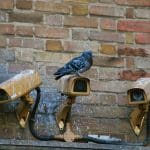Where is the most dangerous job in Washington State?
It is in a hospital believe it or not.
Healthcare Workplace Violence
According to the AP/Times, the most dangerous job in Washington State is that of a Registered Nurse at the Western State Hospital. If you work in healthcare you can certainly relate to this, and if you work in a psychiatric hospital your odds of being a victim of an assault or battery are much higher regardless of what state you are in.
California State hospitals are experiencing the same issues, and in the last year there has been one homicide, a sexual assault, and several serve beatings, and the victims were all staff members.
Napa State Hospital seems to be ground zero on the fight to make the workplace safer. However, you don’t have to work in a forensic or psychiatric hospital to experience the increased violence in healthcare settings. All across our country, and in Canada, the level of violence in hospitals is on the rise. What was once a quiet and healing environment is changing almost daily.
Shootings in Healthcare
In the last couple of years there have been several shootings within medical centers. In several cases the shooter was there to murder a family member and then take their own life. In other cases they took it a step further and also shot a doctor or other healthcare worker prior to committing suicide. Many times there was nothing that the hospital could do to prevent it, or was there?
Hospitals are not like the airports, where everyone must go through metal detectors. However, that is slowly changing across the United States. Hospitals, like all others businesses, are required to provide a safe working environment. Patients and their families also want to be safe. So what are hospitals doing to make things safe? Ask them! Call them and inquire what steps they are taking to insure a safe healing environment? If they say they say that they do not have a problem, how can you be sure? Just like choosing your doctor, do your research on your hospital. The bottom line is you need to know your risks, and if you do not ask, you may never know.






